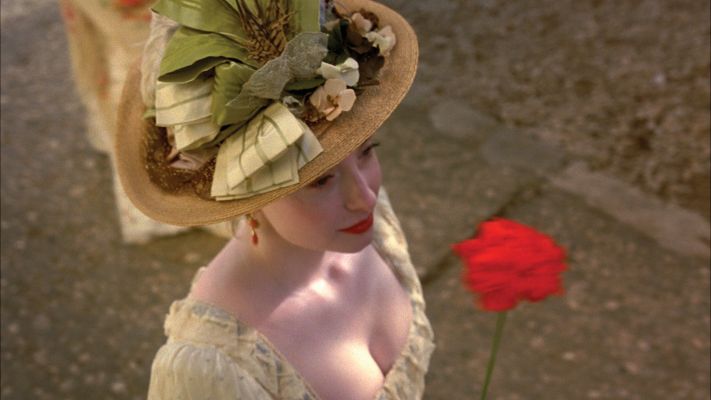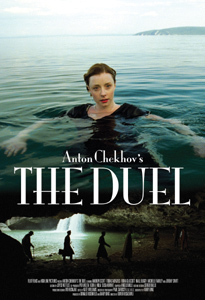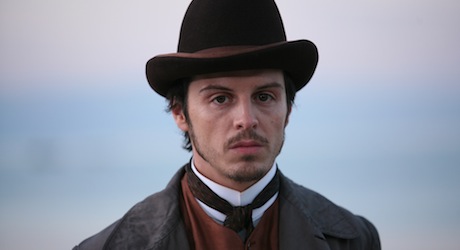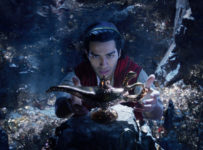A distinctly odd and often flat retelling of a costume drama, that eventually lives up to its title.
[stextbox id=”grey” caption=”Anton Chekov’s The Duel (2010)” float=”true” align=”right” width=”200″]
Director: Dover Koshashvili
Writer(s): Mary Bing
Runtime: 100 minutes
Starring: Andrew Scott, Fiona Glascott, Tobias Menzies
Distributor: Rialto
Country: US
Rating (?): Wait for DVD/Blu-ray
[/stextbox]
Based his 1891 novella, Anton Chekov’s The Duel painstakingly brings the Russian writer’s work to life on the shores of Croatia. This is not to say that Israeli director Dover Kosashvili has been entirely faithful to the short novel, and he certainly takes liberties in the casting of an all-British ensemble in Russian facade. Yet the combination of the cinematography of Paul Sarossy and the Sergio Ballo costume design makes for a handsome and visually breathtaking retelling. Just don’t go scratching too deeply beneath the surface, or it will be pistols at dawn with the filmmakers.
Lovers Laevsky (Andrew Scott) and Nadya (Fiona Glascott) have moved into a seaside village, much to the distress of the conservative locals. Laevsky is a bored aristocrat who realises that after seducing Nadya away from her husband, he has grown bored with her. In serious debt, Laevsky keeps news of her husband’s death from her, out of fear he will have to marry her. Nadya begins to flirt with others due to the lack of Laevsky’s affections. Von Koren (Tobias Menzies), a fire and brimstone Darwinist, who is quick to point out Nadya’s influence on the locals. It comes to a boil when Von Koren eventually challenges Laevsky, who he views as an unnecessary social element, to a duel.
If all Anton Chekov’s The Duel had to do was sit back and be admired for its pretty scenery, period couture and society-skewering barbs, then it would be an exemplar in the realm of the costume drama. Indeed, it’s odd sense of humour is quite endearing at first, and if you can ignore the senselessness of it all, there is a charming wit behind it. However, Mary Bing’s screenplay meanders and labours the point, establishing Laevsky’s boredom, Nadya’s flirtations and Von Koren’s bullying elitism well past the point of comprehension. Perhaps it is appropriate that the charms of the film are only costume-deep.
Director Koshashvili’s 2001 film Late Marriage was screened at the Un Certain Regard section at the 2001 Cannes Film Festival, although this film is far less personal and suffers for it. Glascott is great choice for Nadya though, and her magnetic charms will keep eyes affixed when she is on screen. However, we grow tired of Laevsky almost as quickly as Von Koren does, and the titular duel becomes nothing more than a footnote. At its best, it achieves something close to impressionism, viewing the lives of a certain class through a particularly mid-morning light, perhaps a little bit hungover. Mostly, Anton Chekov’s The Duel wanders, offering a wonderfully polished pistol that is loaded with blanks.
Anton Chekov’s The Duel is released in Australia on 7 June 2012 from Rialto Distribution.






